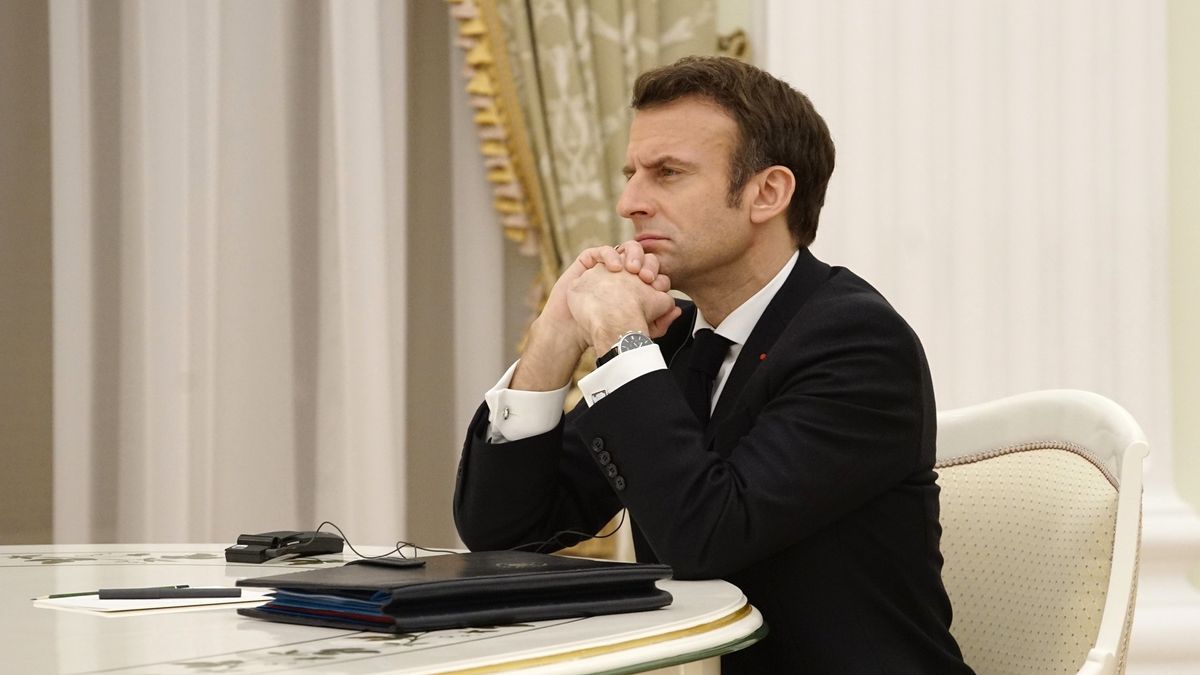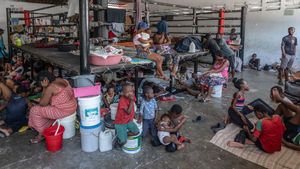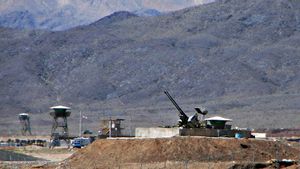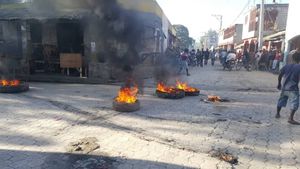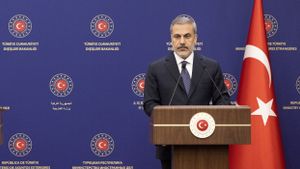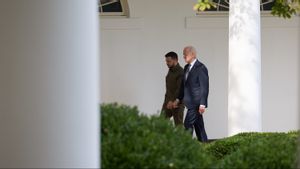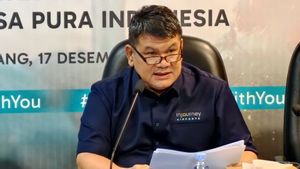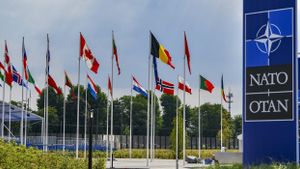JAKARTA - President Emmanuel Macron said France had no plans to send its troops to Ukraine in the near future, after his statement last week drew international reactions.
President Macron on Monday last week opened the door for European countries to send troops to Ukraine, although he warned that there was no consensus at this stage.
His comments, delivered at a meeting of European leaders in Paris on how to increase support for Kyiv, amid the progress of Russian President Vladimir Putin's troops in eastern Ukraine and the increasing lack of ammunition and labor on the Ukrainian side.
When asked to comment on international responses to his remarks at a conference last week on Ukraine in Paris, the French leader said, "In response to questions about troop shipments, I said that nothing was impossible," as reported by TASS March 5.
"This does not mean that we plan to deploy French troops to Ukraine in the near future. This means that we are opening up discussions and considering everything that can be done to support Ukraine, first of all, Ukrainian territory," President Macron continued in an interview with Czech newspaper Pravo.
According to the French president, the meeting participants agreed on five areas of cooperation, namely cybersecurity, joint production of military goods for Ukraine, security assistance to the most vulnerable countries in the context of the conflict in Ukraine, support for Ukraine on its border with Belarus, and cooperation in mine clearing activities.
"In addition, I am always clear about our red line: we are not fighting against the Russian people and rejecting the escalation logic," President Macron stressed.
It is known that President Macron's remarks regarding possible troop shipments drew strong criticism from Russia, while NATO allies set aside measures that could trigger direct conflict with Russia.
Asked about Macron's statement, Kremlin spokesman Dmitry Peskov told reporters: "The fact of discussing the possible delivery of certain contingents to Ukraine from NATO countries is a very important new element."
When asked what risks the Russian-NATO direct conflict would be if NATO members sent their troops to war in Ukraine, Peskov said: "In this case, we need to talk about not the possibility, but about the necessity."
SEE ALSO:
French Foreign Minister Stephane Sejourne said on the next occasion, the presence of Western troops in Ukraine may be needed to offer certain assistance, for example, in mine clearing operations and training of Ukrainian soldiers, but the presence does not mean their participation in the operation. conflict.
NATO Secretary General Jens Stoltenberg said his leadership military alliance had no plans to send personnel to Ukraine. Germany, Britain, Spain, Poland, and the Czech Republic distanced themselves from the suspicion they might deploy ground troops for the war in Ukraine, which is now entering its third year. The White House later reiterated that the United States had no plans to send troops.
The English, Chinese, Japanese, Arabic, and French versions are automatically generated by the AI. So there may still be inaccuracies in translating, please always see Indonesian as our main language. (system supported by DigitalSiber.id)
